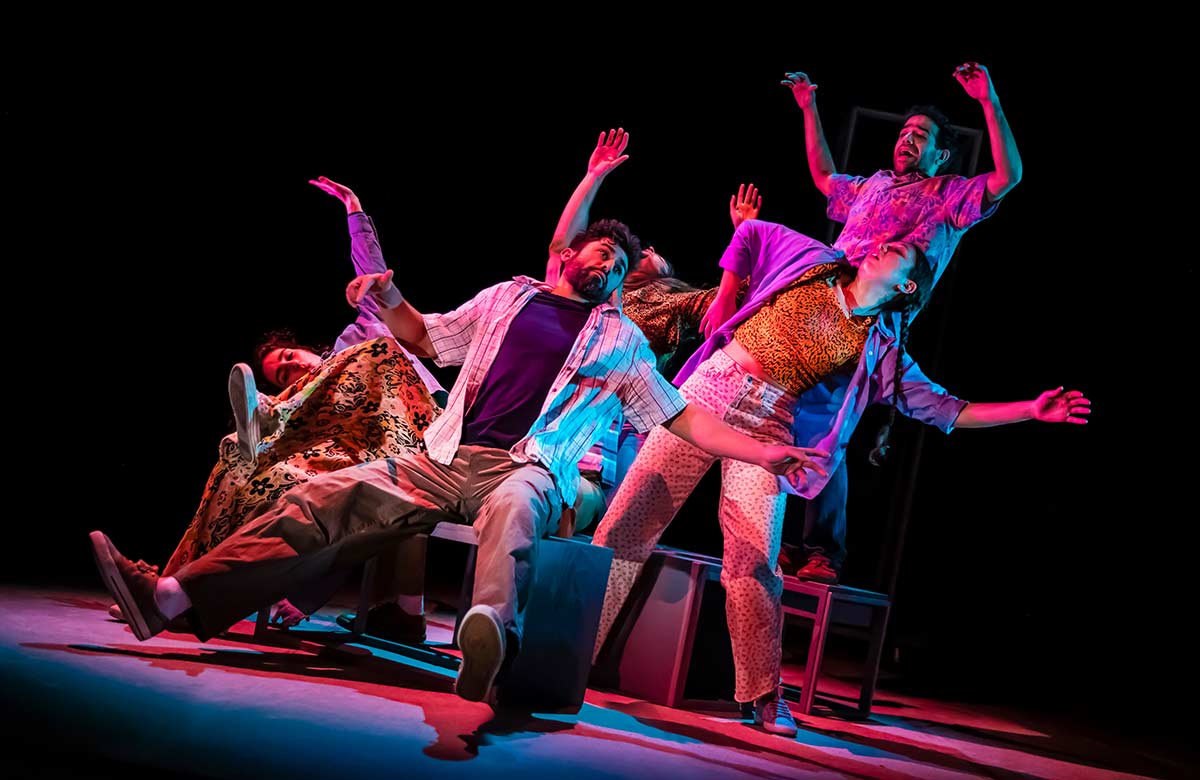
Bittersweet love letter to Cairo in the wake of the Arab Spring
In this debut play by Ahlam, the winner of the 2020 Women’s Prize for Playwriting, six young men and women play out their entangled experiences of living in the city – the heady days of youth, of fumbling and falling in love. With their arms draped around each other’s shoulders, they look like the Friends from the famous sitcom. But, unlike those TV characters, they live in Cairo in 2015, in the shadow of the fast-extinguished hope of the 2011 Egyptian revolution. Though Mubarak has fallen, another dictator (Abdel Fattah el-Sisi, still serving as president) is now in power, and the city – so often a symbol of freedom, a place where you can be who you want to be – is oppressive.
In Katie Posner’s production, Alia (Hanna Khogali) and Tamar (Moe Bar-El) are two young lovers, head-over-heels and silly for one another; but he is Christian and she is Muslim. They clumsily get to grips with sex in dark cupboards, in fear of the police knocking down the door. Then there’s Osman (Tarrick Benham), an emotionally tortured activist who can’t let go of the fight, while everyone around him seems to have given up on hope. His goofy friend Rafiq (Nezar Alderazi) risks his own safety on state-surveilled Grindr. Meanwhile, gender politics, the threat of becoming a “ruined” woman and a coming-out story are explored in the more-than-friendship of two teenage girls, Lina and Maya (Eleanor Nawal and Yasemin Özdemir).
Ahlam, writing under a pseudonym, describes the piece as a “love letter to Cairo” – although that affection is clearly complicated (“Cairo is shit,” says one character). Sara Perks’ set, full of moving parts and the excitement of a bustling city, falls away piece by piece until the stage is almost barren. Huge, distressed concrete blocks hang ominously like the memory of violence, then plummet down. People vanish – fleeing because to stay is untenable or they’ve been forced to disappear – and those left behind pick up the pieces. The love is for the people unloved by the city and for the potential to effect change that persists between them.
This play obviously comes from a deeply personal place, and Posner’s staging puts much energy into communicating that love to the audience, sometimes over-emphatically. The performances are sparky and charming, sometimes to the point of becoming broad and cartoonish. Sequences with ensemble narration and energetic choreography feel overly demonstrative and a tad forced.
Still, by the end, as dreams fall apart and lives buckle under societal and political pressure, the stories’ pathos shines through. It’s a call to arms that adamantly insists on hope.